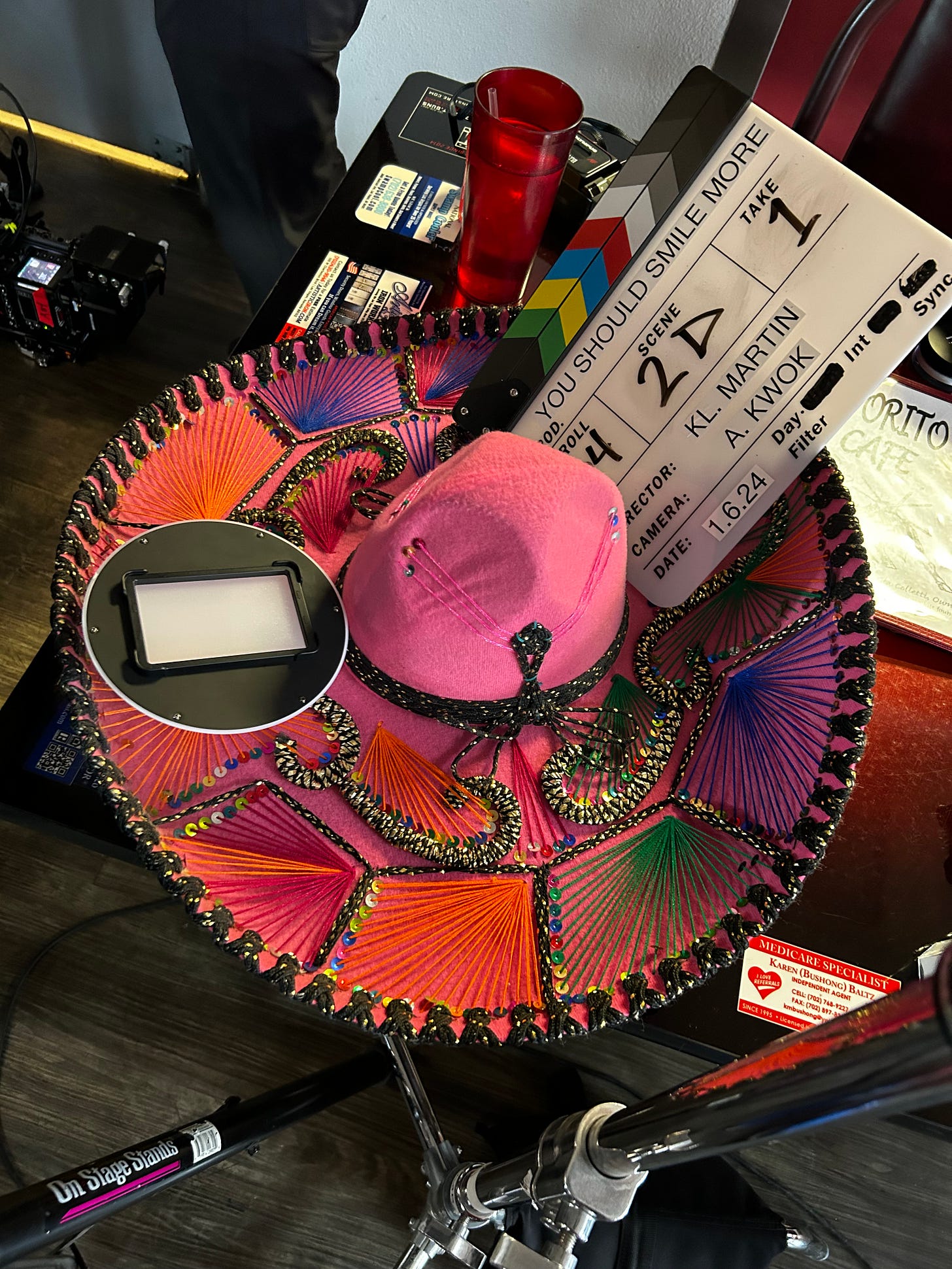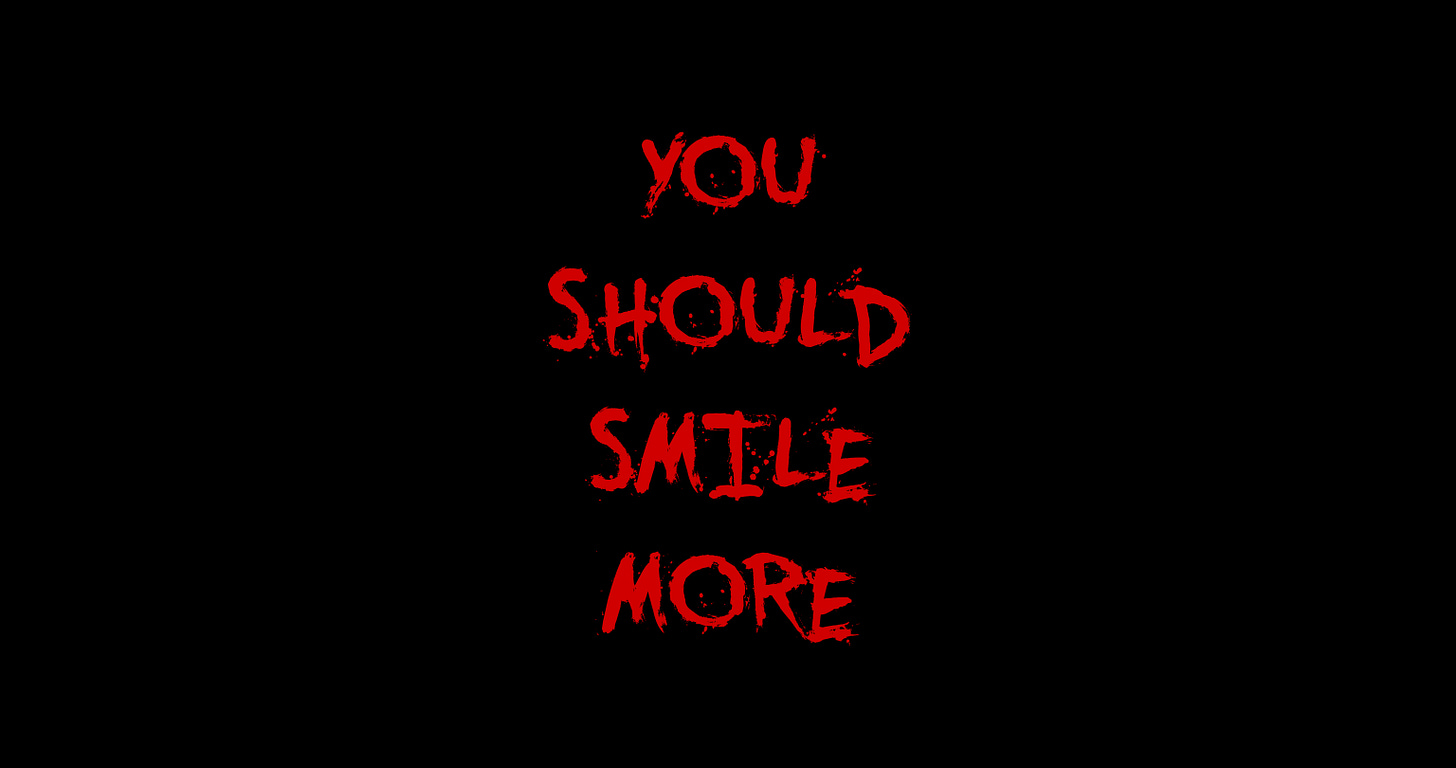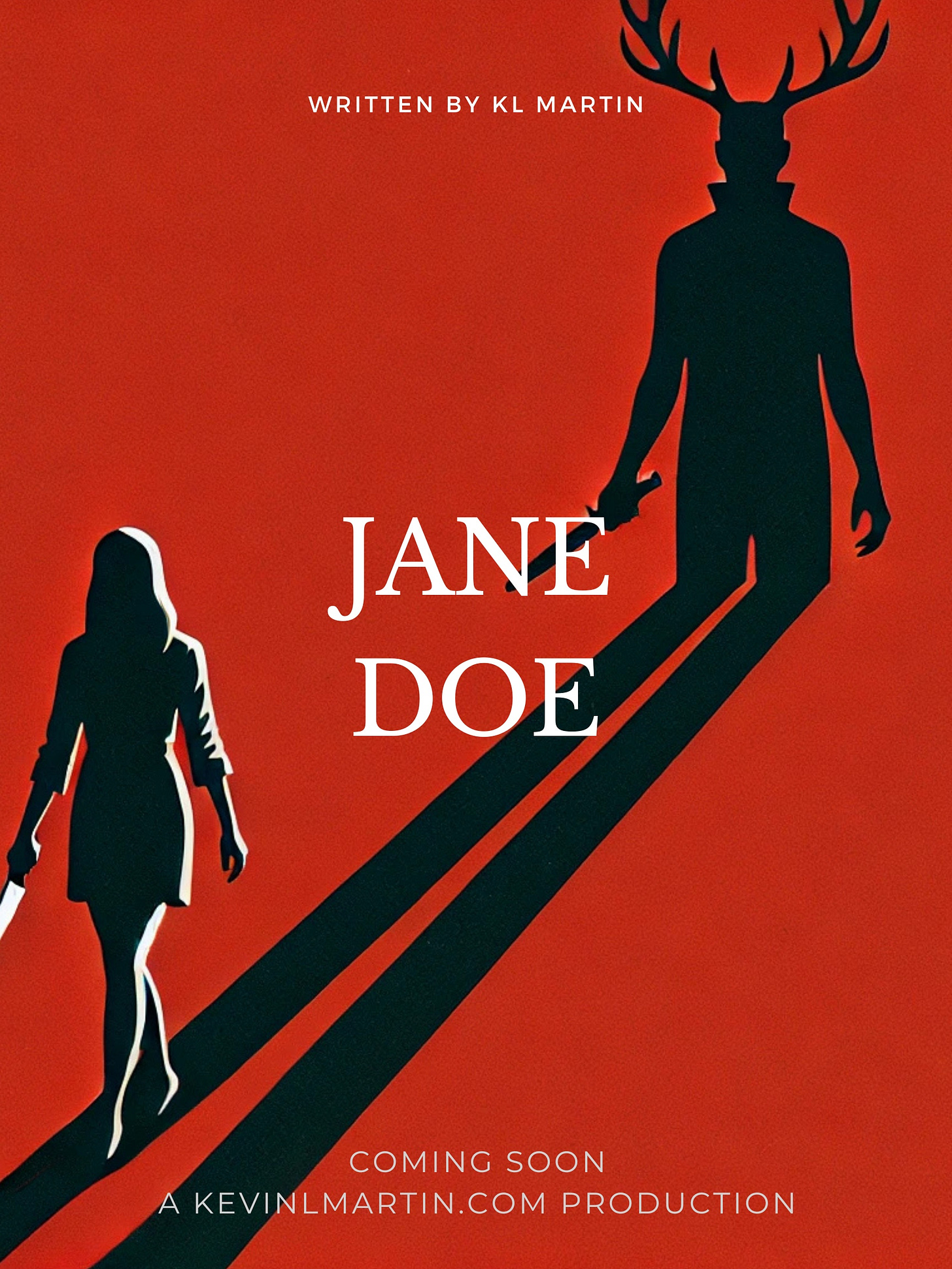Screenwriting With A View #22
The power of the short film and a production company slate update
We’re officially one month into being a production company, and somehow I’ve managed to pull together a solid team without losing my mind. Most of the projects we’re developing are mine (shocking), but we’ve also started branching out. One thing I’ve committed to is helping people make short films—especially when they’re tied to a larger feature.
Why? Because here’s the hard truth: most screenplays aren’t getting picked up out of nowhere. Not yours, not mine, not even the one with the wild third act twist that’ll “change cinema forever.” A short film gives people something to see—it shows what you’re trying to pull off, and how it might actually look in motion.
BTS of You Should Smile More
The benefits of short films are still underrated. A lot of folks don’t get the point. They’d rather stack up screenplays, rack up screenplay contest wins, and then let those scripts rot on their hard drive like leftovers no one ever plans to reheat. And don’t even get me started on screenplay competitions. I’ve gone on that rant elsewhere, but let’s just say: 99.9% of the time, they don’t lead to anything meaningful.
The creative process of making a short is just as valuable as learning how to write one. You learn what it takes to make a movie, even on a small scale. Plenty of writers avoid becoming filmmakers because they think it’s too hard—and yeah, it can be. But after doing a couple shorts, many of them realize how freeing it is to execute their own vision instead of waiting for someone else to “get it.”
The most rewarding part for me? Knowing I can take a project from page to screen and make it visually compelling enough for someone to invest. Most producers aren’t visionaries—they’re business people. Your script might be brilliant, but if they can’t see it, they’re not writing the check.
Now, don’t get me wrong. You might have people on your team with great ideas. They’ll help you shape the story, find the gaps, push the creative. But most of them won’t have the resources to fund the thing—and that’s okay. Just don’t confuse creative support with a financial plan.
This is where the short comes in. Having a short for a larger idea helps people see the big picture. And here’s my hot take: don’t crowdfund your short. It doesn’t make sense. Short films should be scrappy and made with money you can save. If you can’t put together $5K–$10K for your vision, we might need to talk about life planning.
Shoot it over two weekends. Friday–Sunday. Rinse and repeat. Save the crowdfunding energy for the feature. That’s where perks and outreach actually matter.
For example, You Should Smile More did great on the festival circuit and is now living on a few platforms. It was always meant to be the proof of concept for the feature version, Jane Doe, which is almost done. I’ll probably crowdfund that, because horror tends to do well in that space. Just a poster and a logline on #ScreenPit already sparked interest from producers. So yeah—timing and purpose matter.
From an indie perspective, a short film tied to a feature is one of the smartest creative and financial moves you can make. You’re giving people a sample of what you’re about without asking for the moon.
Now, quick update on the slate:
• The Rise and Fall of the Pixels is at the top—it’s got momentum and a little money already spoken for.
• Jane Doe is next because horror + crowdfunding = possibility.
• Craftlace is third, only because the budgets ($300K, 500k, $700K) harder to come by and we need to be within the Nevada tax incentive zone unless we get really lucky.
We’ve got a solid producer on board who believes all three budgets are achievable, and I’ve reached out to others with mixed results. Fingers crossed on one in particular who could really shift things.
Raven’s Room
Back to shorts—Raven’s Room is a project by Jawsh Ojeda. Andrew Kwok, head of production for KLMP, asked me to look at it, and while I liked the visual ambition, it needed a rewrite. Normally, I don’t jump into other people’s work unless they ask or I’m hired—respecting the artist is a big thing for me—but something about Jawsh’s voice hit familiar. Like, “Did you steal my hard drive?” familiar. I’m joking
No joke, part of his ending was eerily similar to the beginning of Jane Doe. He would have no way of knowing that because I haven’t posted it yet, which is crazy. At that point, I knew I wanted to help him. There’s a kindred spirit there. He’s still early in his journey, but I’ve got a decade and some change (and a few gray hairs) on him—both life and industry-wise—and I know the value of someone sitting down with you and saying, “This works, this doesn’t. Let’s make it better.”
That’s honestly the most fulfilling part of this work: helping someone get the thing in their head out into the world. Creating is the currency. Money is just the bonus.
If you’re in this for the money? Long road ahead. If you’re in this to be famous? Quit now.
I say that with love. Real love.
So, to wrap this up, I’ll leave you with a question I ask every writer:
What are you going to do with that finished script?
Because if the answer is “let it sit,” then what was the point?




